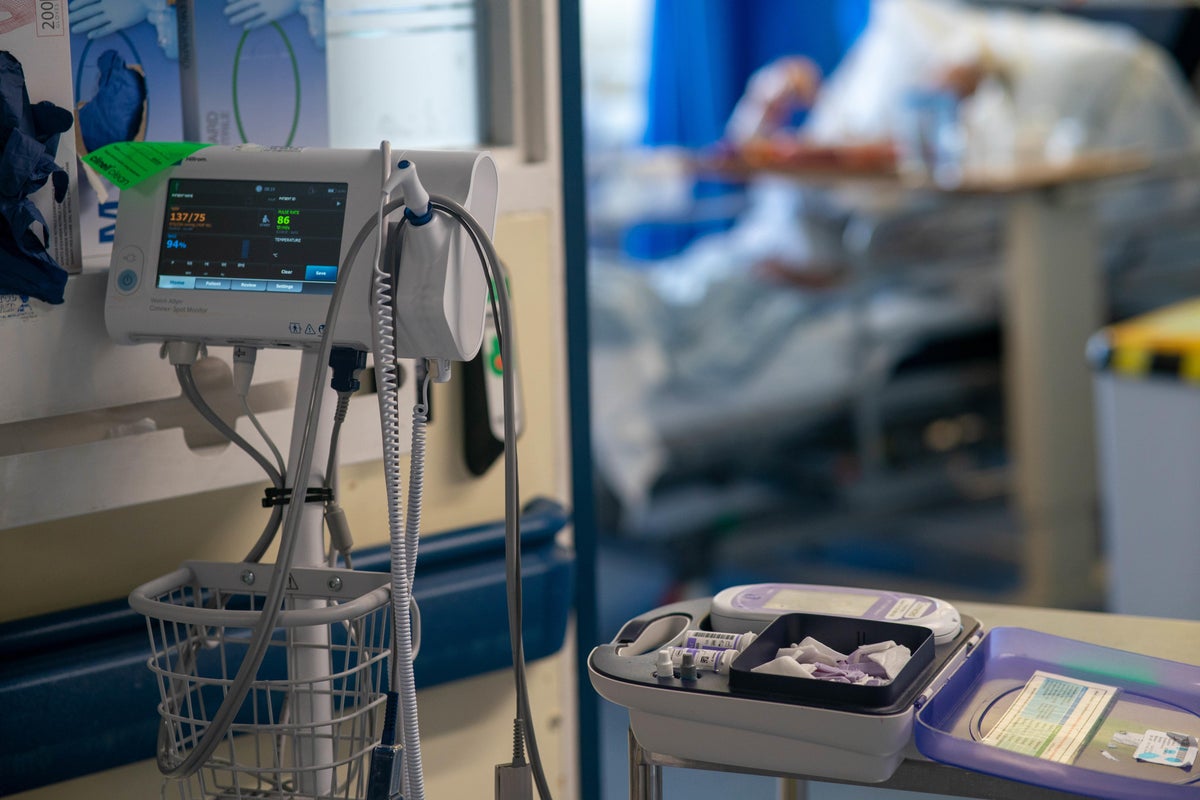
Researchers have found which groups of people are more likely to die from sepsis.
Analysis of NHS data shows that people with certain medical conditions and deprived people have a higher risk of developing sepsis and also have a higher risk of death.
People who have a “history of extensive antibiotic exposure” are also at higher risk – as are people with learning disabilities, experts found.
Sepsis is a life-threatening condition and occurs when the body overreacts to an infection and starts attacking its own tissues and organs.
The new study, led by a team at the University of Manchester, saw experts look at data on 224,000 cases of sepsis in England between January 2019 to June 2022.
These cases were compared to more than 1.3 million people who did not have sepsis.
Researchers used a standardised measure of socioeconomic deprivation which uses information on income, employment, crime rate, living environment and education.
Our research has found that some people were more likely to die from sepsis compared to others, including those in the lowest socioeconomic groups, and that those who need to take antibiotics more regularly are also at greater risk.— Dr Colin Brown, UKHSA
They found that people from the most deprived communities were 80% more likely to develop sepsis compared to people from the least deprived.
After making adjustments for other factors, they found that people with a learning disability were at least three times more likely to be diagnosed with sepsis compared to people without.
People with chronic liver disease hand a three-fold increased risk of developing sepsis, while those with chronic kidney disease had an increased risk which was two to six times higher than the general population, depending on the stage of their disease.
Patients with cancer, neurological disease, diabetes and immunosuppressive conditions were also at increased risk.
Underweight or obese people also had higher odds of developing sepsis.
Smokers also appeared to be at higher risk, according to the study, which has been published in the journal eClinicalMedicine.
The researchers also reported that people of South Asian descent appeared to have a higher incidence of sepsis.
The academics also looked at deaths within 30 days of a sepsis diagnosis.
They found that deaths were highest among those aged in their 80s and people of white ethnicity.
But after conducting statistical analysis on the figures, they found that people from deprived backgrounds, along with patients with chronic kidney disease and chronic liver disease were the groups which had an increased risk of dying within 30 days.
Co-author Professor Tjeerd van Staa, from the University of Manchester, said: “This study shows socioeconomic deprivation, comorbidity and learning disabilities are associated with an increased risk of developing non-Covid-19-related sepsis and 30-day mortality in England.
“This research underscores the urgent need for sepsis risk prediction models to account for chronic disease status, deprivation status, and learning disabilities, along with infection severity.
“There is an urgent need to improve the prevention of sepsis, including more precise targeting of antimicrobials to higher-risk patients.”
Study co-author Dr Colin Brown, lead for antimicrobial resistance and sepsis at the UK Health Security Agency, added: “While severe infections and sepsis can impact anyone, our data is increasingly highlighting the complex interplay between socioeconomic status, underlying medical conditions and sepsis risk.
“Our research has found that some people were more likely to die from sepsis compared to others, including those in the lowest socioeconomic groups, and that those who need to take antibiotics more regularly are also at greater risk.
“Tackling inequalities is a core part of our public health approach and a deeper understanding of who serious bacterial infections affect will help us best target interventions to address them.”
Dr Ron Daniels, founder and joint chief executive of the UK Sepsis Trust, added: “As an intensive care doctor in inner-city Birmingham, I frequently see patients from underrepresented communities presenting late with sepsis.
“This important study reminds us that socioeconomic status and the presence of underlying illness – which are themselves often interlinked and additionally linked to ethnicity – are at play in determining inequality in the risk of developing non-Covid sepsis.
“Healthcare has a duty to reduce this inequality and improve access for all.
“This study therefore highlights the need for targeted education among members of the public in at-risk communities and for the health professionals that serve them, which is why advocacy organisations like the UK Sepsis Trust are working to develop resources in multiple languages, that are inclusive of different skin tones.
“However, we must remember that whilst the risk factors highlighted in this study are important, sepsis can still strike indiscriminately.”
Sepsis is deemed to be a medical emergency, but it can be hard to spot.
In adults, sepsis may feel like flu, gastroenteritis or a chest infection at first.
Early symptoms include fever, chills and shivering, a fast heartbeat and quick breathing.
Symptoms of sepsis or septic shock include feeling dizzy or faint, confusion or disorientation, nausea and vomiting, diarrhoea and cold, clammy and pale or mottled skin.
Any child who is breathing very fast, has a fit or looks mottled, bluish, or pale, or has a rash that does not fade when you press it, may have sepsis.
And a baby or child under five years old who is not feeding, vomiting repeatedly or has not had a wee or wet nappy for 12 hours, may have sepsis.
The UK Sepsis trust said the condition affects 245,000 people and claims 48,000 lives in the UK each year.







